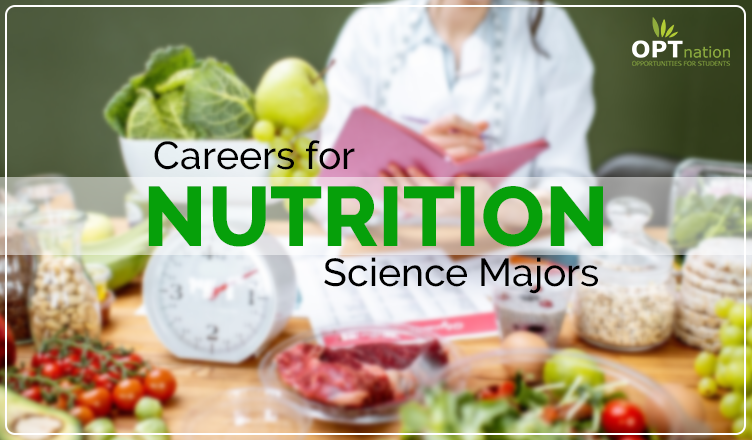A bachelor’s degree in nutrition science could be expected to give you a strong foundation in various scientific disciplines that relate to food. In particular, this degree typically includes coursework in biology, microbiology, anatomy, physiology, chemistry, biochemistry, psychology and specialized nutrition courses. The degree will typically prepare you well for a fantastic variety of nutrition and diet-related careers, although some of the most popular food-related career paths may require postgraduate study or other credentials in addition to your bachelor’s degree.
Top 4 Careers for Nutrition Science Majors:
1. Registered Dietitian Nutritionist (RDN)
A registered dietitian nutritionist (RDN) is a board-certified expert who has invested considerable effort in studying nutrition science and understanding food’s effects on human health. A properly credentialed RDN is legally able to maintain a clinical practice.
Frequently, an RDN’s job description involves providing evidence-based diet-related therapy and counseling that will help their patient to achieve specific dietary or health goals. For example, an RDN might specialize in helping people recover from eating disorders. There are also sports dietitians who help to empower athletes to maximize their performance capabilities. Clinical dietitians implement nutrition programs for people in hospitals, clinics, long-term care facilities, colleges, public schools or similar settings.
In the past, a bachelor’s degree was a sufficient academic credential for becoming an RDN. In the future, according to the Commission on Dietetic Registration, a graduate degree will also be required starting in January of 2024 in the United States. The aspiring RDN must also complete an accredited internship program that complies with all standards set by the Accreditation Council for Education in Nutrition and Dietetics (ACEND). State licensure is also a typical requirement for legal practice in the United States. Some US states may require state registration or certification instead of or in addition to licensure.
2. Nutritionist
If you aren’t planning to maintain a clinical practice, you could consider becoming a nutritionist instead of an RDN. This is an option for nutrition science majors in some US states and in Australia.
A nutritionist typically performs nutrition counseling or menu planning for individuals or groups.
In some US states, you need a license, registration and / or certification to legally perform nutrition counseling. In other US states, it’s legal to perform nutrition counseling without obtaining registration, certification and / or licensure. However, in all states, it is important to be aware of insurance limitations, because depending on the insurer and circumstances, you might not be eligible for reimbursement by your insurer if you are practicing nutrition counseling without being registered, certified and / or licensed.
It is possible to find entry-level nutritionist jobs that do not require a master’s degree; however, it is not unusual for employers in this field to prefer candidates who hold a master’s degree, even if they don’t specifically require this credential.
3. Food Safety Auditor
Food safety auditors typically conduct food safety inspections on behalf of their employers. The job description is likely to also require them to write detailed reports communicating their findings to various other stakeholders within their organization or to governing authorities. Some food safety auditors are required to travel to conduct audits at facilities in varying locations. In addition to the Bachelor of Nutrition Science degree, this role may also require a food safety (CP-FS) credential in some cases.
ALSO READ:
Practical Skills You Need to Start Your Bioscience Career
Tips for Searching Jobs in this Coronavirus Pandemic
4. Food Scientist
Food scientists are typically employed by food manufacturers, restaurant chains or other food purveyors. Often it is large, multinational corporations that have the sizable budgets needed to hire these professionals. Food scientists might work independently or as part of a team to develop new food products on behalf of their employers.
Food science jobs can vary greatly when it comes to the academic credentials the employer requires. Some food scientist jobs specifically require current RDN credentials and state licensure, but many do not. In some cases, particularly where the employer is a junk food manufacturer, a nutrition degree may not even be relevant; such jobs might require a food science or food chemistry degree instead of a nutrition science degree. Many food science jobs require a master’s degree. Occasionally, there are jobs that require a PhD in food science, meat science or food engineering.
If you haven’t graduated yet, and you’re thinking you might like to apply for food scientist jobs after graduation, it would be advisable to consider taking courses that would be directly relevant to food science. Food scientists generally need to have a broad knowledge base that includes proficiency in chemistry; mathematics; scientific weights and measures; and legal issues relating to food and food labeling. Some universities offer a food science minor, which could help to qualify you for a broader range of jobs than a nutrition degree alone would. If you have the resources to attend graduate school, a master’s degree in food science would be advantageous for securing jobs in this niche.
Of course, these are not the only jobs that you could potentially be qualified to do if you’ve earned a nutrition science degree; there are many possibilities and opportunities other than these. However, these are 4 of the most relevant and rewarding types of careers for nutrition science major, you might want to consider applying for after you graduate with a bachelor’s degree in nutrition science.

